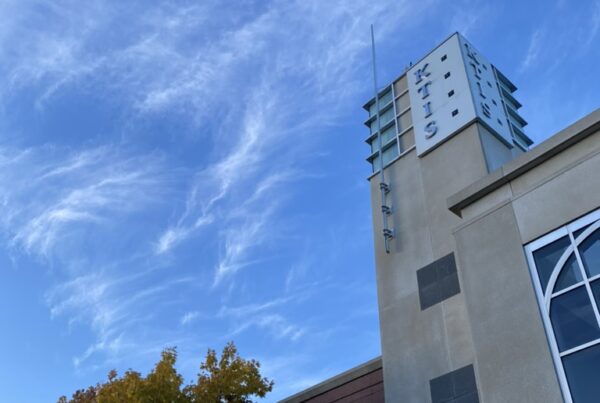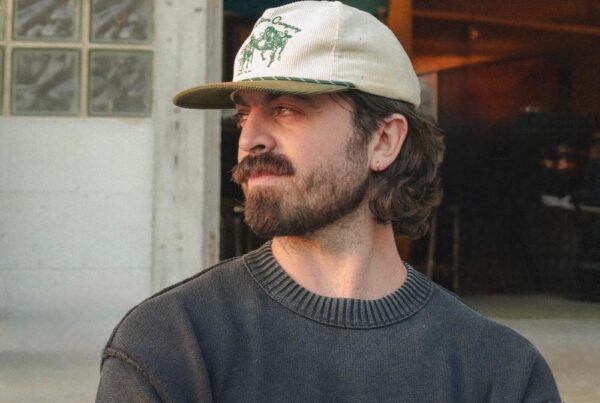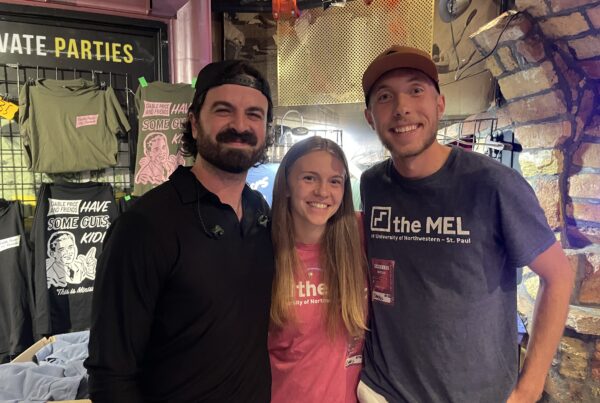On Monday, November 9, a group of 40 to 50 students and alumni from the University of Northwestern–St. Paul and other universities around the Twin Cities gathered on Northwestern’s campus green to protest on-campus racism. It was 40 degrees and rainy, but the march started at 1:15 p.m. and lasted for several hours. The group circled the main campus twice before crossing Lydia Avenue to march around the Mel Johnson Media Center and off-campus dorms.
In hopes of keeping marchers safe, marshals drove cars in front of and behind marching students, and student organizers enforced social distancing guidelines. Once they found out rain was forecasted, students pooled money to purchase rain ponchos, masks and hand sanitizer for distribution during the march. Several faculty and staff members passed out umbrellas.
On their route around campus, the group paused to listen to current student and alumni speakers. Alumna Ruti Doto and current students Presley Apson, Isabel Lopez, Payton Bowdry and Mariah Nelson all spoke on their experiences as former or current students of color on campus.
Nelson read and restated some of the protest’s key points found in the title of the march, “Listen, Hear, Believe BIPOC.” BIPOC refers to Black-Indigenous People of Color. “We are not here to trash Northwestern, we are not here to be disrespectful, we are here to ask you to affirm our dignity. Please affirm our God-given dignity,” Nelson said before reading an open letter to the administration out loud.
Several students reported that a Northwestern alumnus yelled at students marching around campus. Katy St. John, a junior communications major, also said several students shouting campaign slogans followed protesters. “This is not a political stunt. This is about human rights,” St. John responded.
Students Mariah Nelson, Payton Bowdry and Katy St. John led and organized the march. They decided in September to hold the protest, but the planning took several more months. Nelson shared that one of their main goals is to see a diversity, equity and inclusion office formed at Northwestern. “This is not a new ask…. We’re just behind in the fact that we don’t have somebody or a team of people working specifically toward diversity and equity on Northwestern’s campus,” she said.
St. John also contrasted the university’s current initiative with a DEI office. She said that “the difference [from Northwestern’s current measures] is there isn’t a space for BIPOC students to go to.”
Over email, President Cureton wrote that he, Nina Barnes, the Vice President of Student Life and the Provost, Dr. Janet Sommers, are meeting to discuss forming an office to support current measures. He also mentioned the Strategic Diversity and Inclusion Framework, formed in 2019. It outlines surveying and assessing campus bias, providing funding for diversity initiatives, prompting prayer gatherings for reconciliation and “increas[ing] the understanding and narrative of non-white community members….”
Isabel Lopez, a senior history major at Northwestern, accused Northwestern of being “based on Western-colonized doctrine,” during her speech. She said the institution had “failed to recognize sin is not just manifested through an individualistic level through your relationship with Jesus, but through a systematic level…that sin is used to oppress and silence others for the benefit of keeping a power dynamic existing in this system.” She also accused Dr. Cureton of leading a COVID-19 response that benefited white students over students of color.
Dr. Cureton responded: “Favoring white students in response to COVID? Absolutely not true. Questioning the university’s emphasis on Western civilization over the principles outlined in Scripture? Absolutely not true. Our faculty members would never seek to compromise biblical principles for the purpose of teaching a specific set of ideas or segment of human history.”
After the march, Nelson, St. John and Bowdry met with President Cureton to discuss their list of demands. “Dr. Cureton was open to hear the things we had to say, and I hope [he] takes those into consideration on how the university moves forward,” Nelson remarked. She later said, “…our reason for engaging in social justice is because of our faith, because of who Jesus is, and because of what the Gospel says, and I would venture to say people who don’t see social justice as a part of the gospel are missing a piece of it.”
Dr. Cureton finished his response by writing, “Until we are willing to listen and seek to understand the narrative of fellow brothers and sisters in Christ, disunity will prevail. The kingdom of God is multicultural…UNW is striving, amidst all of its shortcomings, to reflect the beauty and strength of God’s Kingdom.”


